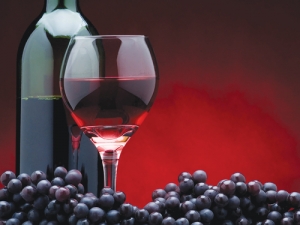Decades worth of studies, however, have produced contradictory and divergent results, as Lee Suckling who recently completed a master's degree in health reporting specialising in nutrition myths, has discovered.
Whenever we hear about red wine being rich in antioxidants, we're talking about polyphenols. A polyphenol is a dietary micronutrient that is thought to have healthful benefits because of its unique chemical makeup. The primary polyphenol found in red wine is resveratrol.
A 2006 study published in Nature journal found resveratrol to improve health and lifespan of mice on a high-calorie diet, and this study was one of the first to be overblown by the media decreeing that red wine is good for our health. However, those mice were injected with the combined resveratrol dosage equivalent of 1000 glasses of red wine; hardly something healthy for any person to do. How did media make this connection?
It all goes back to something known as the 'French Paradox'. In 1992, it was established in the scientific journal The Lancet that the French, who drank a substantial amount more red wine per capita than other countries, have lower rates of cardiovascular disease and coronary atherosclerosis than all other Western nations.
The paradox here was the French's relatively high consumption of saturated fats (a fat linked to negative health problems such as diabetes) from products such as butter and cheese, which were placed highly on the standard French diet.
However, between these two influential studies was a review from 1996 published in academic journal BMJ, which concluded that all alcohol – not just red wine –reduces heart disease risk when consumed moderately (1-2 glasses per day).
This review looked at ten studies and found white wine, beer, and spirits to be equally beneficial in heart heath, despite containing no resveratrol.
It seems, then, that the Nature study on mice a decade later, often used to declare red wine's exclusive benefits, may not be relevant at all, because resveratrol doesn't appear to be relevant to humans.
In fact, in 2014 Clinical Nutrition journal concluded after a meta-analysis of studies about resveratrol that this polyphenol's antioxidant properties have no proven positive effect on human blood pressure.
While resveratrol has also been touted as helpful in preventing cancer, slowing the metabolism, and improving lifespan, other meta-analyses of studies have found weak and inconsistent evidence to support any of these claims.
This isn't helped, of course, by misleading media stories. A recent example was seen on 22 October 2015 in New Zealand news outlets, which claimed, "red wine [is] equal to a gym workout".
This report was based on a three-year-old resveratrol study that had nothing to do with red wine, and even the study's authors fought back at media saying they never recommended wine in place of exercise.
Some studies pronounce a specific cardioprotective effect from consuming of any kind of wine (not just red), famously the 12-year Copenhagen City Heart Study.
This study looked at 13,285 people and noted that those who drank wine had their risk of dying from heart disease or stoke cut in half from those who didn't drink it. Consumers of beer and spirits did not experience the same healthful benefit.
However, such a study doesn't take into account other factors such as diet, exercise and socioeconomic status, and how they affect alcohol consumers' health.
Conceivably, thus, those who drink wine instead of beer or spirits may be healthier because they make (and have the financial and educational resources to make) other healthy choices in their life.
This is actually the key flaw concerning the typical study model that is used to explore alcohol consumption: Observational research.
Observation-based studies are known to produce lower-quality evidence than other types of academic studies. This is because observational studies in these cases monitor only specific alcohol consumption habits, they do not measure external factors that skew results and alter cause-and-effect theories.
Confusion around red wine's health benefits is usually sparked when an authoritative organisation announces a review on particular studies, and provides a commentary that is contradictory to that which had preceded it.
For example, the American Heart Association reviewed 13 studies comprising a total of 209,418 human participants, and this analysis showed "a 32 per cent risk reduction of atherosclerotic (artery clogging) disease with red wine intake".
This sounds promising until another organisation, such as Australia's Victoria Heart Foundation, reviews and analyses other studies to conclude:
"Any positive effects of alcohol in reducing the risk of cardiovascular disease have been hugely overestimated. In particular, red wine has no special, protective qualities when it relates to cardiovascular disease."
With such grand contradictions in mind, where are we currently sitting on red wine from a science point of view?
As at late 2015, scientists largely still hold the view (dating back to 1996 research) that any type of alcoholic beverage is heart-healthy when consumed at a rate of no more than two drinks per day.
This is because the presence of alcohol in the body raises the amount of healthy cholesterol (known as high-density lipoprotein) in the blood, which means the blood is thinner and less able to clot.
This results in lower rates of heart attacks and heart disease, and makes a person less susceptible to Type 2 diabetes.
Of course, proclaiming that the alcohol component in alcoholic beverages is the elixir of heart-health is dangerous, because of the variable of "moderation".
Researchers uniforming agree that heavy drinking outweighs any positive benefits of alcohol consumption, as it quickly stops being cardioprotective and starts becoming "cardio-harmful".
Not to mention its connection to problems with obesity, the liver, the pancreas and other parts of the body, and of course addiction.
Many studies, such as a 13-year observation published in BMJ in 1994, found these negative effects to kick in when a person drinks three or more units of alcohol per day. Newer studies such as one by Journal of Internal Medicine in 2015 also stand by the two-drink cap for healthful consumption.
With this in mind, however, red wine will continue to be singled out as healthy because of the buzzword 'antioxidant'. Here's why.
Polyphenols are antioxidants, and antioxidants are good for the body. Resveratrol, a polyphenol, is found on the skin of grapes, and because red wine is fermented with skins on for longer than other wine, it contains the highest levels of resveratrol.
Therefore, red wine theoretically should be best for the body because it has higher antioxidant content than other wine. That is, of course, until the caveats (such as resveratrol volume required for the benefit, or the lack of evidence that resveratrol is beneficial to humans at all) are explained.
These limitations are easily left out in media reports, because typical health reporting purposefully overblows science in order to create a more saleable story. A media report filled with caveats doesn't make for the most compelling reading.
Society can only ever rely on the best available evidence to support a healthful claim such as "red wine is good for your heart", and as it currently stands, the evidence isn't there to specifically support the dark grape product.
Any kind of alcohol will do the same cardioprotective job as red wine. So rest assured, we can still drink to our health. Just not because of the colour of the drop.












